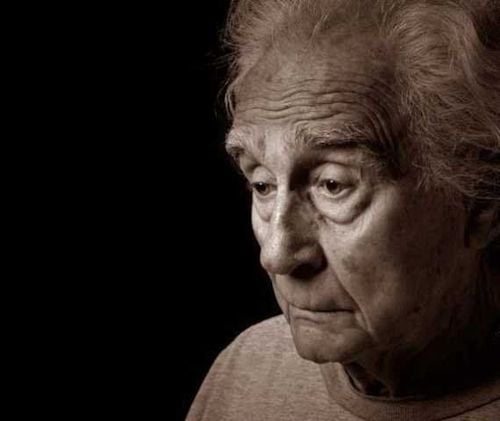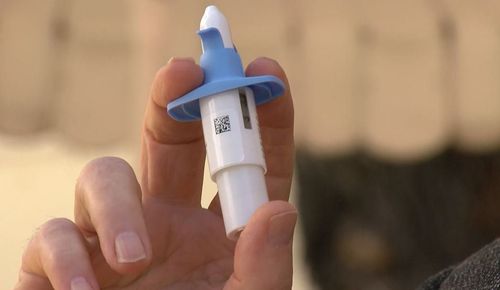This is an automatically translated article.
The elderly stage is defined from 65 years of age. When negative factors affect the elderly's life too much, it will cause depression. Depression in the elderly is often combined with many other diseases, making it more complicated and difficult to treat.1. Causes of depression in the elderly
Depression is not only common in young children but also in the elderly. In particular, women are twice as likely to suffer from depression than men. The risk of depression also increases with accompanying neurological and cardiovascular diseases such as stroke, Parkinson's...For people who have just retired, there are many changes that affect, even turn their lives upside down. such as:
Too much free time: This is the change, even the biggest shock when entering retirement, especially for a hard-working, dedicated worker. At that time, the body and lifestyle had not yet adapted to the full-time rest. The feeling of missing work, missing office relationships makes the elderly uncomfortable, even somewhat frustrated, easily angry because every day is idle. Some retirees return to work for many reasons: Not feeling comfortable, feeling useless, lonely... Worried about finances: Entering retirement age means a decrease in income somewhat. This also creates a feeling of insecurity, stress, anxiety and lack of confidence in the elderly when thinking about risks, especially about health, even though they have previously prepared carefully accumulated plans for health care. retirement. Many studies have shown that worrying about finances in retirement increases the hormone Cortisol, which has a negative effect on health and longevity. Feeling of being redundant in the family: Prolonged idle time also causes the elderly to feel weak, having no voice in the family due to being at home, having little contact with the vibrant outside world. Feeling out of date. If not shared and cared for properly, the thought "I'm an extra person, a burden for my children" will become more and more serious, leading to irritability, fatigue, and even depression. Sexually active: Approximately 70% of men and 20% of women >60 years of age are still sexually active. Several prospective studies have shown that sexual impulse does not generally decrease with age in both men and women. Medications can have side effects that affect sexual performance. More sensitive: In retirement, the social activity of the elderly will decrease somewhat. Therefore, even a small conflict with family members is enough to make the elderly feel lonely and lonely. An elderly person, often faces many health problems, aging, and even loneliness. The negative impact of chronic diseases and the death of loved ones is also a significant factor affecting the mental health of the elderly.

Một người cao tuổi, thường phải đối mặt với nhiều vấn đề về sức khỏe, sự lão hóa, và cả cô độc
2. Some warning signs of depression in the elderly
Feeling bored, empty. Difficulty concentrating, forgetful. Always feel tired, do not want to do anything. Feeling guilty, worthless, unworthy, not worth living Insomnia or sleeping too much. Or angry, angry. Reduced interest in everyday activities or hobbies. Decreased appetite, weight loss, or overeating. Thinking about death, having suicidal thoughts or behavior. In addition, many patients with depression are also presented with symptoms such as headaches, chest pain, digestive disorders...3. Some notes on depression in the elderly
Most cases of depression tend to become chronic, with a high rate of recurrence, with incomplete recovery between episodes. 15% of elderly people in the community and in foster homes have symptoms of depression. Age itself is not a risk factor for depression, but widowhood and chronic medical conditions are factors that promote depression.Common signs and symptoms of major depressive disorder include decreased energy and concentration, sleep problems (especially waking up early in the morning and waking up many times during the night), decreased appetite, decreased appetite. weight and body complaints.
Compared with depressed young people, depressed elderly people often pay more attention to physical complaints. They are particularly susceptible to major depression with melancholy features manifesting in depression, suspicion of illness, decreased self-esteem, feelings of worthlessness, and a tendency to self-incriminate (especially with regard to sex and guilt) accompanied by paranoid delusions and suicidal ideation.
Cognitive decline in elderly depressive patients is often referred to as depressive dementia syndrome (pseudodementia) and can easily be confused with true dementia, which occurs present in about 15% of elderly depressed patients. In contrast, 25-50% of patients with dementia suffer from depression.
Depression can be associated with physical diseases and with drugs used to treat them, so it is necessary to be vigilant about drugs that can cause depression.
Depression in the elderly seriously affects the mental health of the patient, along with bad health effects. Therefore, when the elderly have just retired, facing many changes in time, activities or daily activities, relatives, families and children should pay more attention to the psychology of the new adult. retire.

Phần lớn các trường hợp trầm cảm có xu hướng trở thành mạn tính, tỷ lệ tái diễn cao, phục hồi không hoàn toàn giữa các giai đoạn. 15% người cao tuổi trong cộng đồng và trong nhà nuôi dưỡng có triệu chứng trầm cảm. Bản thân tuổi tác không phải là yếu tố nguy cơ của trầm cảm nhưng tình trạng góa bụa và bệnh lý đa khoa mãn tính là yếu tố thúc đẩy trầm cảm xuất hiện. Triệu chứng và dấu hiệu thường gặp của rối loạn trầm cảm bao gồm giảm năng lượng và sự tập trung, vấn đề về giấc ngủ (đặc biệt là dậy sớm buổi sáng và thức giấc nhiều lần trong đêm), giảm ngon miệng, sụt cân và các than phiền về cơ thể. So với người trẻ trầm cảm thì người cao tuổi trầm cảm thường chú ý đến các than phiền về cơ thể hơn. Họ đặc biệt dễ bị trầm cảm chủ yếu với những nét sầu uất thể hiện qua trầm cảm, sự nghi bệnh, giảm lòng tự tin, cảm giác vô giá trị và khuynh hướng tự buộc tội bản thân (đặc biệt là về tình dục và tội lỗi) kèm theo hoang tưởng paranoid và ý tưởng tự tử. Sự suy giảm nhận thức ở bệnh nhân trầm cảm cao tuổi thường được gọi là hội chứng sa sút tâm thần của trầm cảm (giả sa sút tâm thần) và có thể dễ dàng lầm lẫn với sa sút tâm thần thật sự, chúng xuất hiện trong khoảng 15% bệnh nhân trầm cảm cao tuổi. Ngược lại có 25 - 50% bệnh nhân sa sút tâm thần bị trầm cảm. Trầm cảm có thể kết hợp với các bệnh lý cơ thể và với những thuốc dùng để điều trị chúng nên cần phải cảnh giác về những dược phẩm có thể gây trầm cảm. Bệnh trầm cảm ở người cao tuổi gây ảnh hưởng trầm trọng đến sức khỏe tinh thần của người bệnh, kèm theo ảnh hưởng xấu đến sức khỏe. Do đó, khi người lớn tuổi vừa về hưu, phải đối mặt với nhiều thay đổi về thời gian, sinh hoạt hay hoạt động hằng ngày, người thân, gia đình và con cháu nên quan tâm nhiều hơn đến tâm lý của người lớn mới về hưu.
Please dial HOTLINE for more information or register for an appointment HERE. Download MyVinmec app to make appointments faster and to manage your bookings easily.













